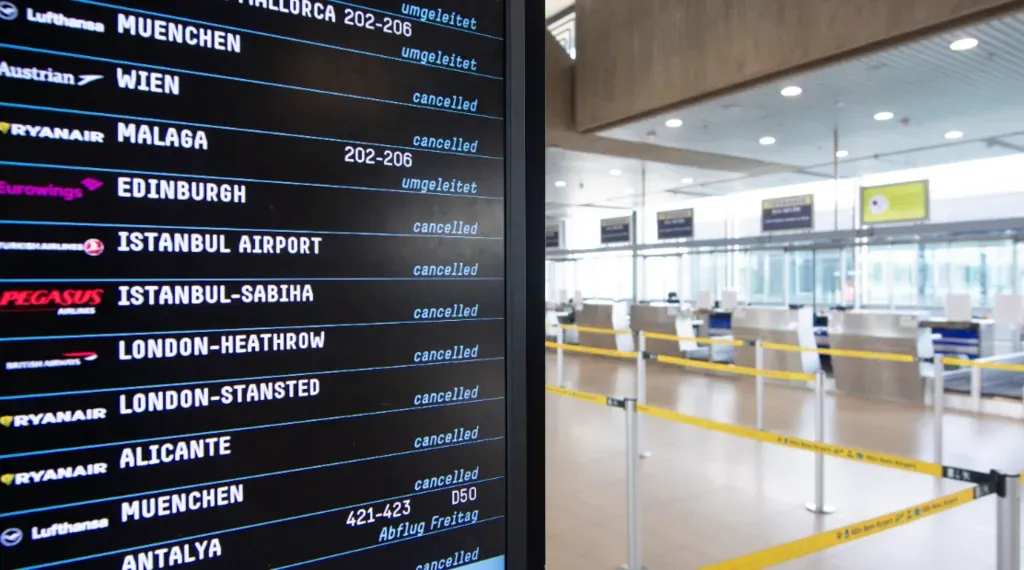Overview of the Incident
On Wednesday morning, Cologne-Bonn Airport, one of Germany’s key regional transportation hubs, experienced a significant disruption due to a climate protest. Activists from the group Last Generation staged a dramatic demonstration by gluing themselves to the tarmac, leading to a temporary halt in all flight operations. The interruption, which affected numerous travelers and flight schedules, highlights the growing tension between environmental activism and everyday transportation.
Details of the Protest
Activist Actions
The protest was orchestrated by the climate activist group Last Generation, known for its radical approach to drawing attention to climate issues. Early in the morning, five protesters gained unauthorized access to the airport’s airfield and glued themselves to the taxiway. The visual impact of their protest was stark, with one member seen with his hands firmly attached to the pavement, symbolizing the group’s commitment to halting climate change.
The group’s primary demand was for the German government to push for a global agreement aimed at phasing out oil, gas, and coal by 2030. This goal reflects the activists’ broader mission to expedite the transition to sustainable energy sources and combat climate change.
Response and Impact
Upon discovering the activists, airport authorities immediately suspended all flight operations. The emergency response was swift, with local police intervening to manage the situation. The police operation concluded around 09:15 local time (07:15 GMT), allowing the airport to resume normal flight operations.
In the interim, several inbound flights were rerouted to alternative airports in the vicinity. The disruption caused considerable inconvenience, and passengers were advised to check with their airlines or tour operators for the latest updates on flight statuses.
Broader Context of Climate Protests
Similar Protests Across Europe and North America
The Cologne-Bonn protest was part of a larger wave of climate activism affecting airports across Europe and North America. In Helsinki, Finland, protesters from the group Oil Kills blocked security gates at Helsinki Vantaa Airport. In Barcelona, Spain, five activists from the same group were intercepted at El Prat Airport. Additionally, nine activists in London faced arrest by the Metropolitan Police for allegedly conspiring to disrupt Heathrow Airport.

In Oslo, Norway, three activists breached the perimeter fence at Gardermoen Airport. They were removed within approximately 30 minutes, but not before an angle grinder was discovered near the damaged fence, raising concerns about potential future security breaches.
Previous Disruptions
This incident at Cologne-Bonn Airport follows a similar event in May, when Munich Airport was temporarily shut down for two hours due to six climate protesters gluing themselves to a runway. The Munich protest resulted in the diversion of 11 flights and approximately 60 cancellations. Following this incident, Germany’s Interior Minister Nancy Faeser indicated that a review of security measures at Munich Airport would be conducted to prevent future disruptions.
Reactions and Measures
Airport Authority Response
Cologne-Bonn Airport, Germany’s sixth-busiest airport, managed to resume flight operations relatively quickly after the protest. However, passengers were warned to expect delays and cancellations throughout the day. The airport’s management emphasized the importance of checking with airlines for the latest flight information to mitigate the impact of the disruptions.
Security and Policy Implications
The repeated incidents of climate protests at major airports underscore the need for enhanced security measures and policies to address such disruptions. Airports are crucial infrastructure nodes that play a significant role in global transportation and commerce, making their vulnerability to such protests a serious concern for both security and operational efficiency.
The German government, alongside airport authorities, will likely face increasing pressure to balance the right to peaceful protest with the need to maintain critical infrastructure functionality. This balance will be essential to ensure that future protests do not result in similarly severe disruptions.
Conclusion
The climate protest at Cologne-Bonn Airport represents a growing trend of activism aimed at drawing attention to urgent environmental issues. While the immediate impact was significant, with flights suspended and passengers inconvenienced, the broader implications highlight the ongoing struggle between environmental advocacy and operational stability in critical infrastructure sectors. As climate activists continue to seek impactful ways to press their demands, airports and governments will need to adapt their strategies to address both security and environmental concerns.


